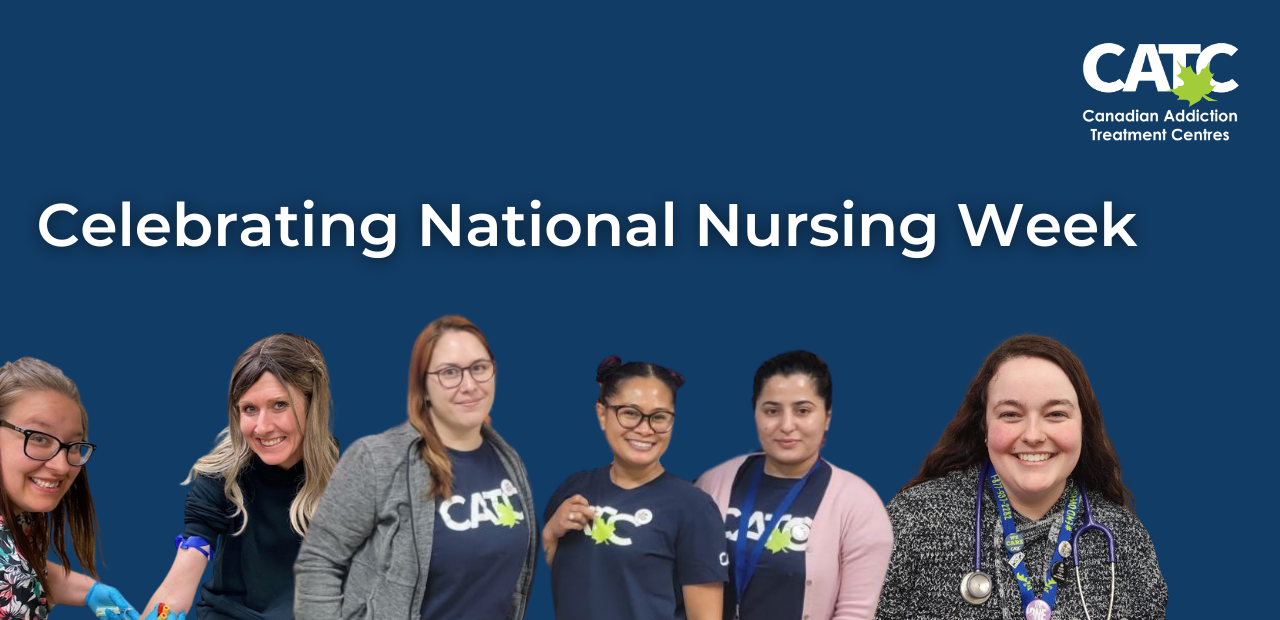Nursing Week 2024: Interview with Jacqueline Dagenais
Nursing Week 2024: Interview with Jacqueline Dagenais
During National Nursing Week, we’re celebrating the incredible nurses who play a pivotal role in the recovery process for patients and clients in our care. We spoke with Jacqueline Dagenais to learn more about her experiences, challenges, and the profound impact of her work.
1. Why did you become a nurse, and what drove you to specialize in addictions care?
When I was younger, I was hospitalized and the nurses made such a great impact on my experience it influenced me to want to do the same for others. I have chosen to specialize in the field of addiction and mental health as it has become such a large area of concern. I enjoy helping clients through their recovery journey and realize that they are capable of change.
2. Can you share a memory from your time working at one of our treatment centres, in which you were able to make a real difference in a patient/client’s recovery?
One of my favourite aspects of working at CATC is educating our clients and giving them the autonomy to manage their recovery. Many clients do not realize they are ultimately responsible for their care alongside the doctor. When they learn that they can slowly decrease their medication dose and are not going to be on it for their entire life, I can see a light flicker in their heads like I have given them a sense of hope.
3. What do you find to be the most challenging and rewarding aspects of working in addiction treatment? What keeps you motivated through the challenges?
The most challenging aspect of working in addiction treatment is meeting the clients where they are at. Everyone is at a different state of change and we must provide a high-quality of care with no judgement. This can be difficult when a client continues to follow the same patterns or experiences a relapse in their recovery. The most rewarding aspect would be when I recognize a client wanting to make a change and they begin to receive carry doses. Seeing clients climb their way through recovery after hitting rock-bottom reminds me that I am making a difference.
4. What is your approach to building strong relationships with people in your care, and why is it so important to do so?
As a float nurse, I encounter many patients in a week. To build strong relationships, I approach everyone with a positive attitude and attempt to learn about each client during my short interaction. I remind my patients that the recovery journey is a lifelong experience and sometimes you might need to take it one day at a time. I reassure my patients that we are here to support them through all aspects of their recovery. If we cannot provide direct services, we will help access resources within the community that could help.
5. Why should nurses choose to work in addictions care? What is your favourite part of the job?
Nurses should choose to work in addiction care if they want to help their clients feel empowered. Addiction care is a tricky specialty that requires patience and strong assessment skills. A thorough understanding of the stages of change and the relationship between addiction and mental health concerns are crucial to providing a wholistic approach for our clients. Supporting clients through their recovery journey is extremely rewarding, especially watching some of them graduate from the program. We meet them at some of their worst states and by providing a safe place for them to be vulnerable they feel heard and understood.
Thank you, Jacqueline, for everything you do. Happy National Nursing Week!
